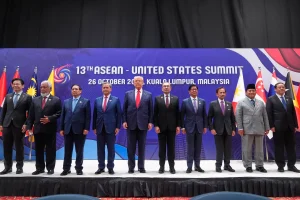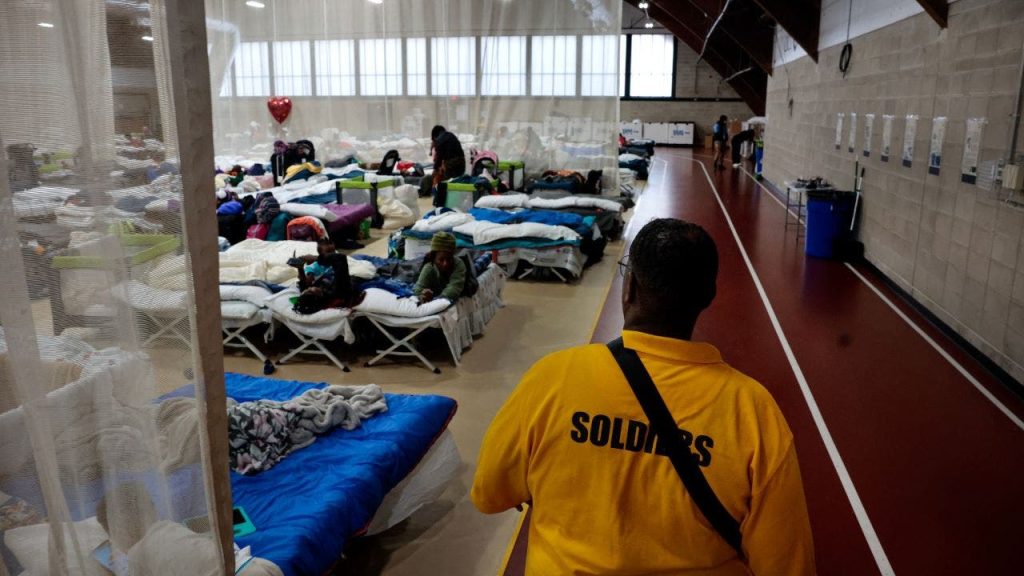Jon Fetherston, a former director of a migrant shelter in Marlborough, Massachusetts, has unveiled a series of deeply disturbing allegations concerning the conditions within the state’s migrant shelters. His account paints a picture of rampant violence, sexual assault, and what he describes as mismanagement of resources within a system struggling to cope with the influx of migrants arriving from the southern border. Massachusetts, a self-declared sanctuary state, has allocated substantial taxpayer funds, nearly $1.1 billion in this fiscal year alone, to house and feed these individuals, often converting hotels into temporary shelters.
Fetherston’s most alarming accusations center on incidents of sexual violence. He alleges that a father impregnated his 14-year-old daughter within the Marlborough shelter, a claim seemingly supported by a report from The Maine Wire, which details the case of Ronald Joseph, an illegal immigrant accused of raping his daughter multiple times during their journey to and within the United States. Despite the severity of the accusation, Joseph was reportedly not charged and was simply transferred to another taxpayer-funded shelter in Worcester, Massachusetts, after exhibiting aggressive behavior towards staff. Fetherston expresses profound concern over the lack of legal action taken against Joseph, questioning the logic of placing him in another vulnerable environment.
Further intensifying the gravity of the situation, Fetherston describes another incident involving the alleged rape of a 16-year-old girl by a 29-year-old man identified as Gladimy Rodene. According to Fetherston, the girl recounted the assaults to a police officer, leading to Rodene’s arrest and removal from the shelter. An abuse prevention order was reportedly issued, barring him from the shelter and the victim’s high school. Disturbingly, reports suggest Rodene may have assaulted another girl as well. Despite these serious allegations, Immigration and Customs Enforcement (ICE) confirmed they did not have detainers on either Joseph or Rodene. These cases raise significant questions about the safety and security protocols within these shelters, particularly for vulnerable individuals like minors.
Beyond the alleged sexual assaults, Fetherston depicts a chaotic environment within the shelter, marked by frequent violence among residents, often stemming from disputes over limited resources such as microwave access. He recounts a personal experience where a migrant drove a car into his office, an act he believes was retaliation for his decision to limit the distribution of diapers, formula, and wipes to migrants receiving government benefits. Fetherston’s description of daily life at the shelter highlights the challenges faced by both residents and staff in navigating the overcrowded and resource-strained environment.
Fetherston also provides insight into the logistical and financial operations of the shelter. His responsibilities encompassed assisting migrants with accessing social services, including food stamps and government health insurance. The shelter provided three meals a day through catering companies and Fetherston managed the procurement of essential items like toiletries, diapers, and baby wipes. He also arranged for state-funded dry cleaning services and Uber rides for the residents. Fetherston claims he was given access to an Amazon account and other resources with no spending cap, raising concerns regarding financial oversight and potential wasteful spending of taxpayer dollars.
These allegations surface amidst a politically charged climate surrounding immigration policy. Massachusetts Governor Maura Healey has declared her opposition to cooperating with potential deportation efforts by the incoming Trump administration, pledging to utilize “every tool in the toolbox” to protect the state’s residents. President-elect Trump, on the other hand, has vowed to implement a widespread deportation operation targeting millions of illegal immigrants. This clash of ideologies underscores the complex and contentious nature of the immigration debate, particularly in sanctuary states like Massachusetts, which have seen a significant influx of migrants, estimated at 50,000 since 2021 according to the Center for Immigration Studies. The situation in Massachusetts highlights the pressing need for a comprehensive and humane approach to immigration policy that addresses both the needs of migrants and the concerns of residents while ensuring the safety and security of all involved. The allegations raised by Fetherston demand thorough investigation and underscore the critical importance of accountability and transparency in the management of migrant shelters.








